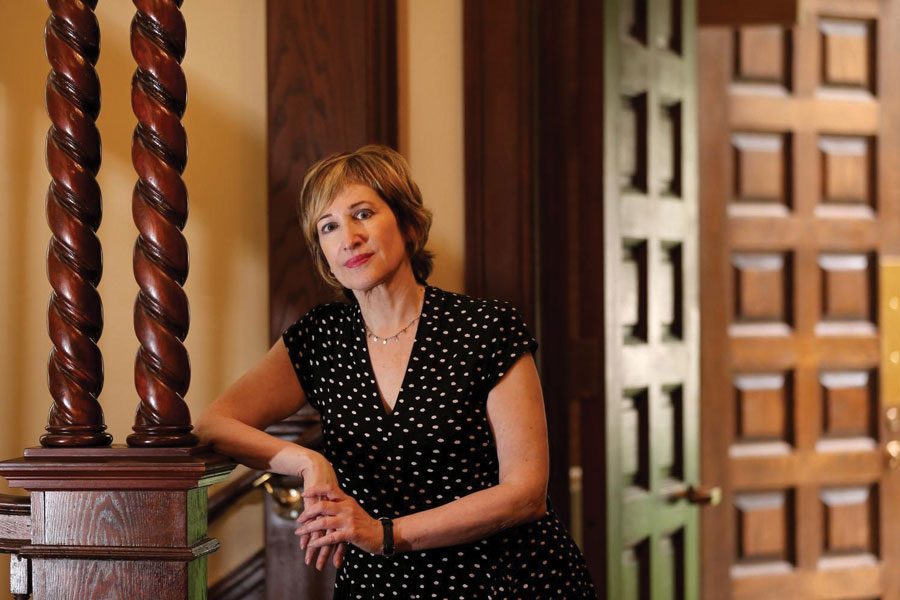Communication Prof. Laura Kipnis discusses #MeToo in New Yorker podcast
Chris Sweda/Chicago Tribune/TNS
Laura Kipnis. The Communication professor spoke on a New Yorker podcast about the state of the #MeToo movement.
February 7, 2018
Communication Prof. Laura Kipnis reflected on the state of the #MeToo movement and contemporary feminism in a New Yorker podcast released Monday.
Kipnis is the author of “Unwanted Advances: Sexual Paranoia Comes to Campus,” which includes her experiences with Northwestern’s Title IX procedures. A graduate philosophy student filed a lawsuit after the book’s publication for counts including “false and damaging statements.” Kipnis spoke with staff writer Alexandra Schwartz on the “Politics and More” podcast about the #MeToo movement and consent in heterosexual relationships.
Pointing to the case of Aziz Ansari, an actor and comedian whose recently publicized sexual encounter sparked a national conversation about consent, Kipnis said the woman involved also did not read Ansari’s “signals.”
Men have acted “incredibly grossly” in sexual interactions within the workplace, on dates and in campus settings, Kipnis said. She said men need to change their sexual behaviors, but there is simultaneously room for women to be “self-examining about their participation” in some of these situations.
Kipnis said that while some women have come out during the #MeToo movement to publicly discuss “things that were once private,” employers and universities have hijacked the power of public revelation to control students and employees.
“You’ve got these institutions and employers stepping in wanting to cover their ass,” Kipnis said. “(It turns) this into a behind-closed-doors set of decision-making about what is and isn’t consent … without there being any public discussion about that.”
Kipnis said the #MeToo movement is, at best, an educational moment not only for men to reflect on their vulnerability, but also for women to reflect on how they may be “complicit in not reading what signals were being issued” by men.
“I’m kind of pro-#MeToo, and I do think that this insurrectionary spirit is fantastic and exciting,” Kipnis said. “And at the same time, I also think there is a certain amount of excuse-making that maybe I feel my generation allowed ourselves less.”
Correction: A previous version of this story misquoted Laura Kipnis twice and misstated Kipnis’ comments about the sexual behavior of men, women’s participation in sexual interactions, the power of public revelation and ways in which the #MeToo movement is an educational moment. The Daily regrets the errors.
Email: [email protected]
Twitter: @piuadrianw












